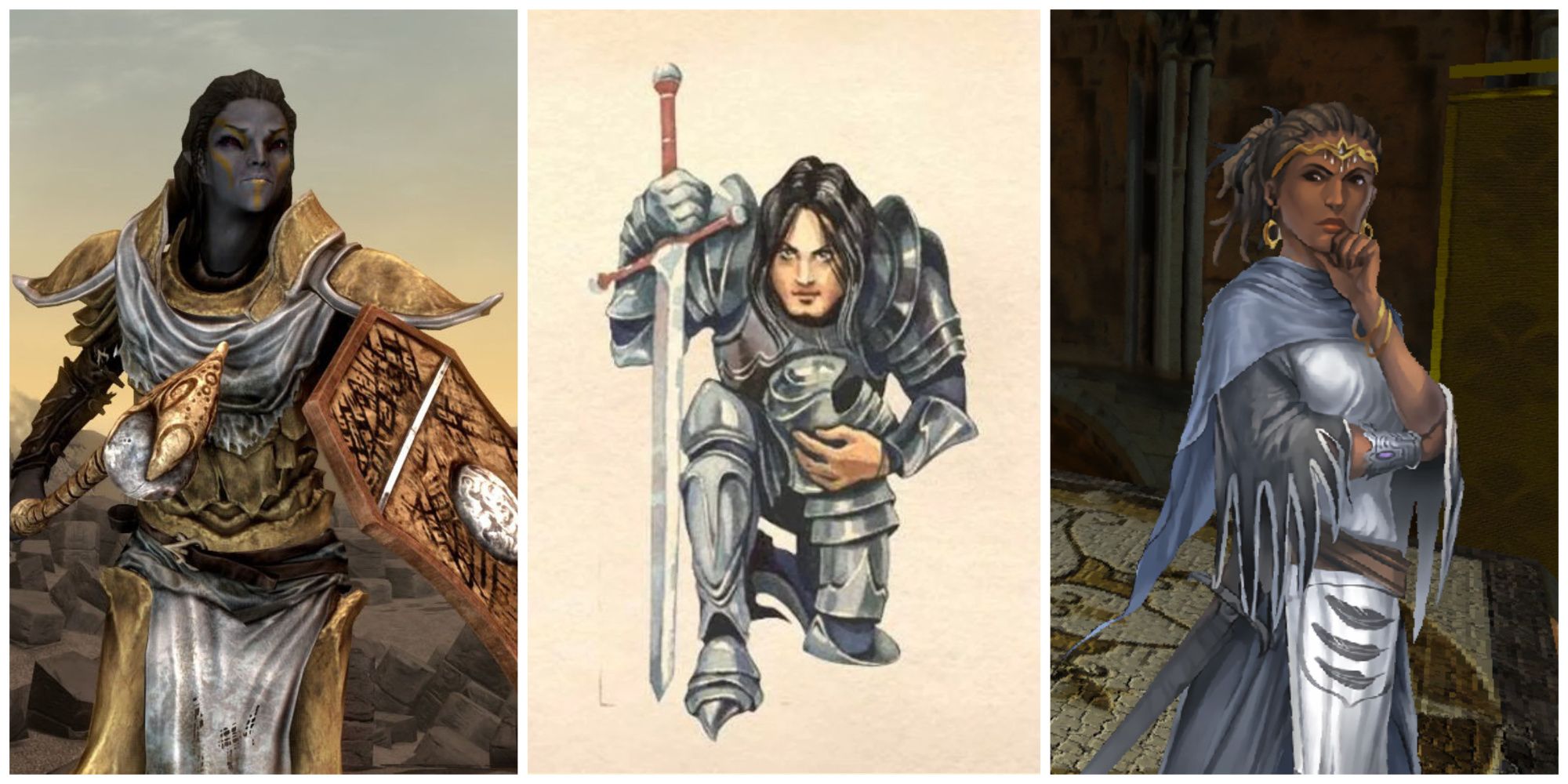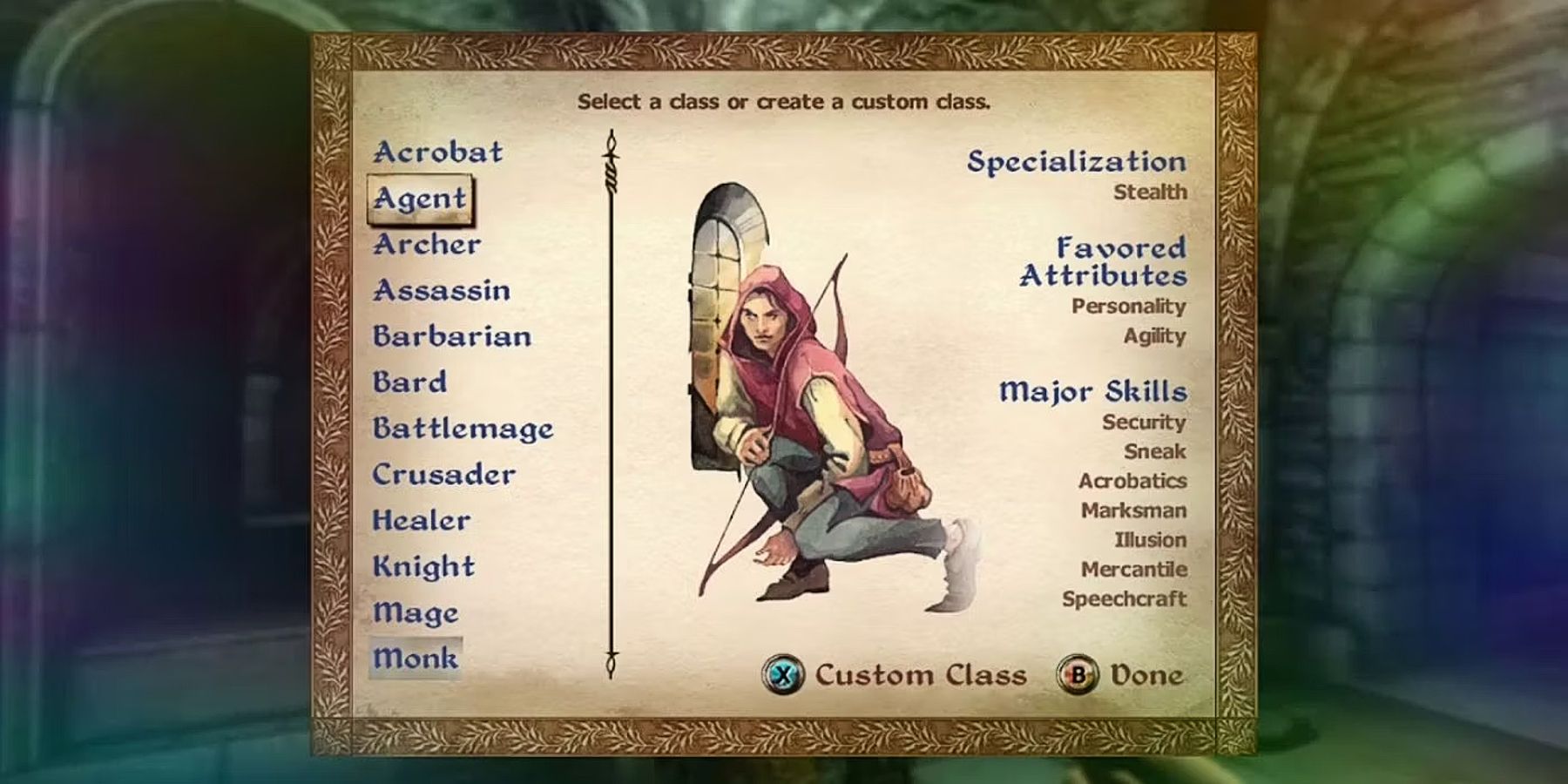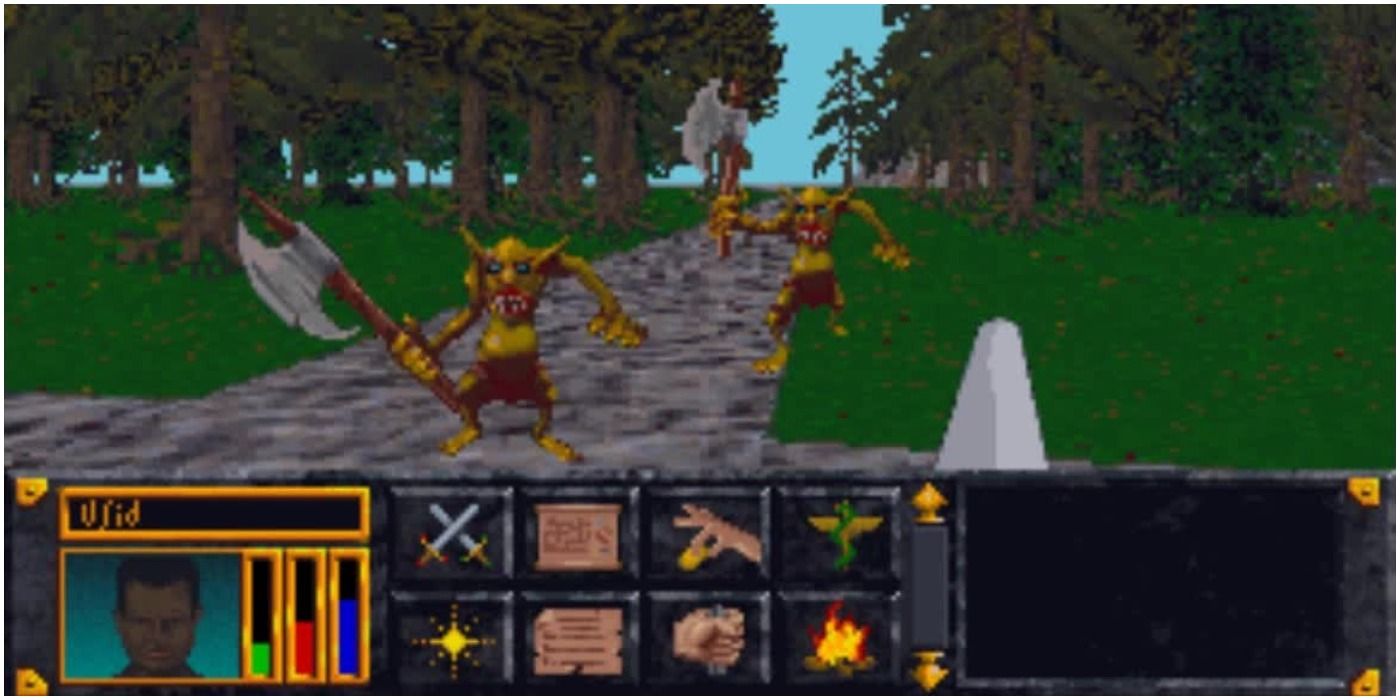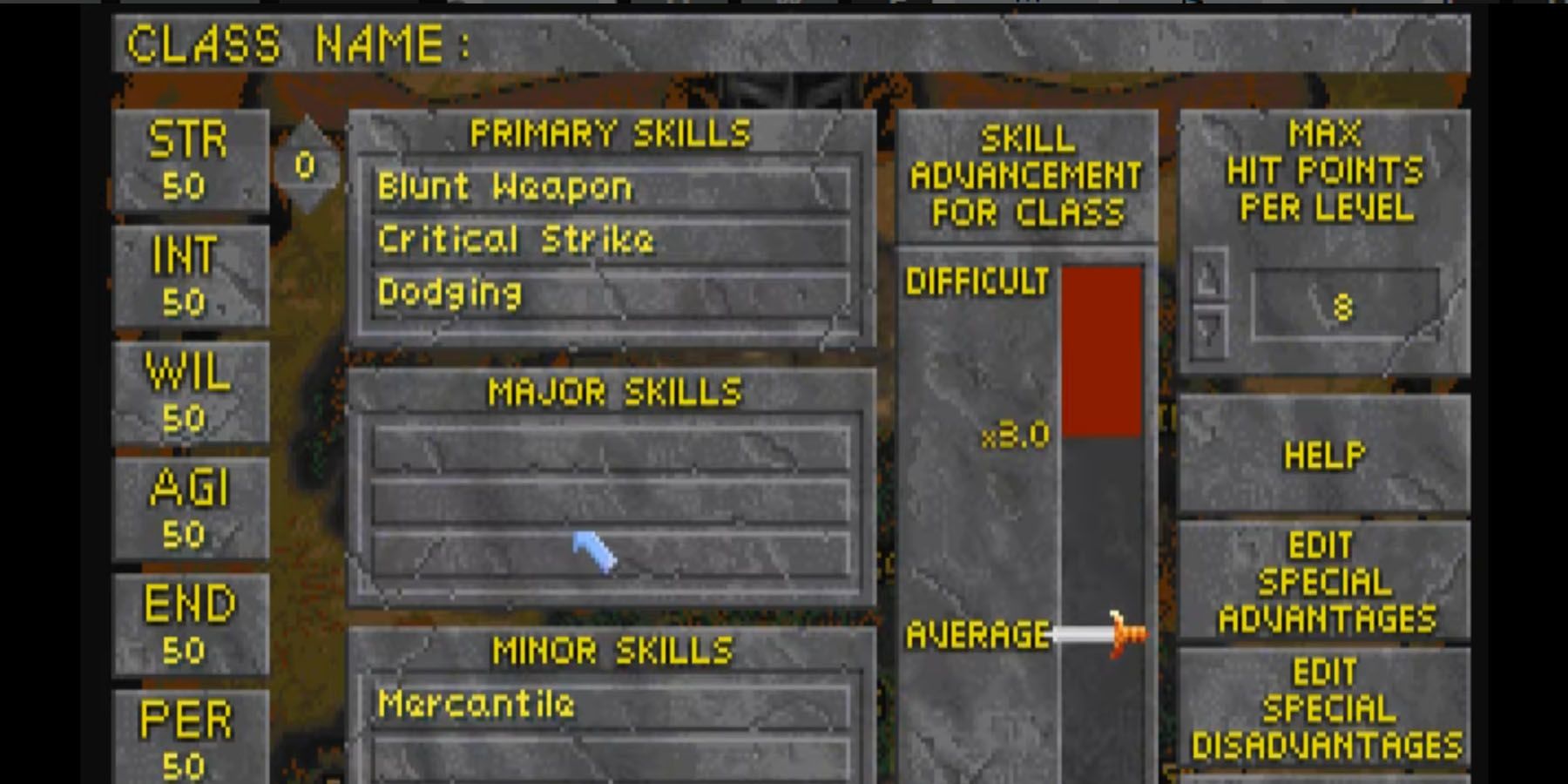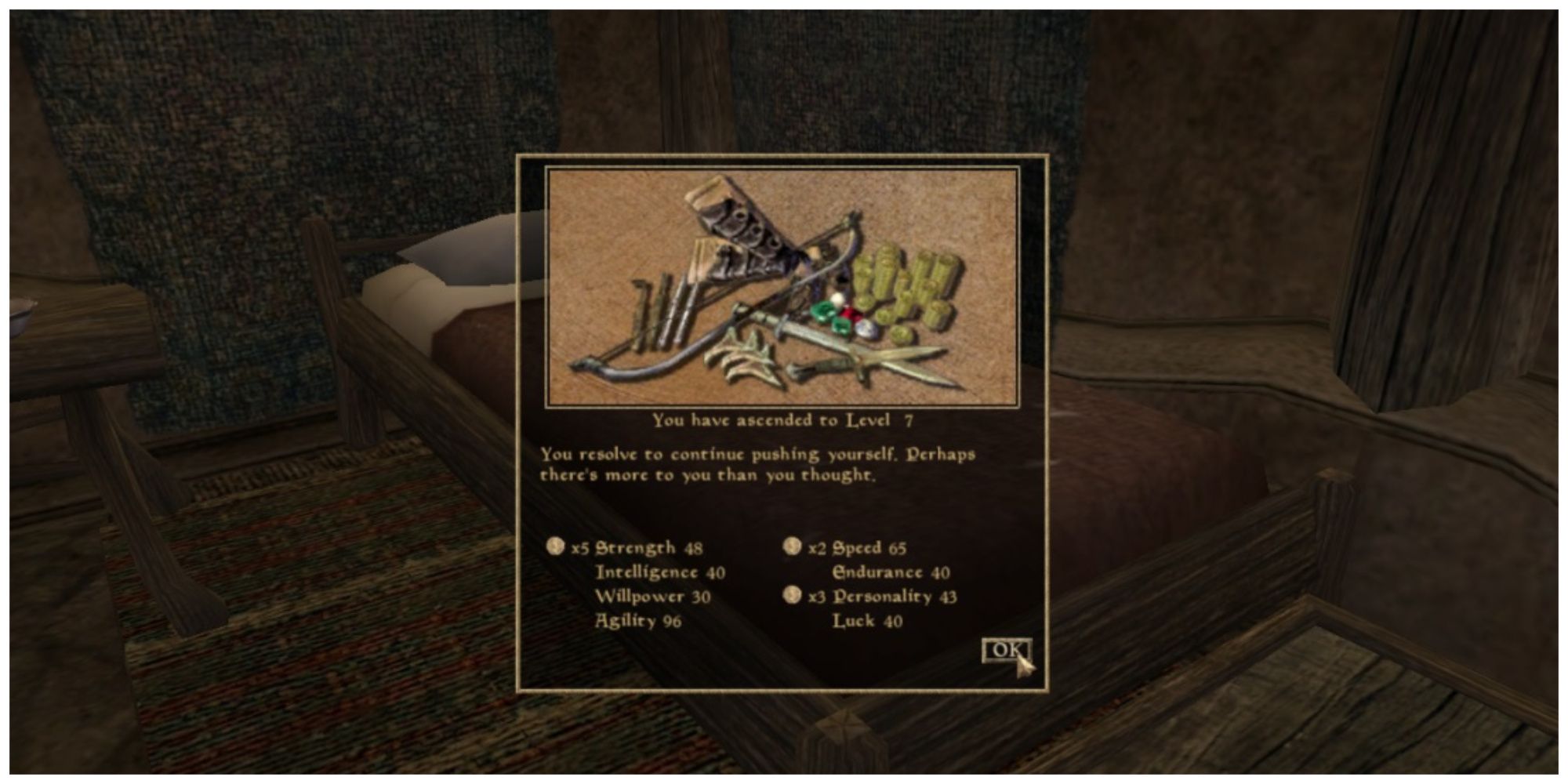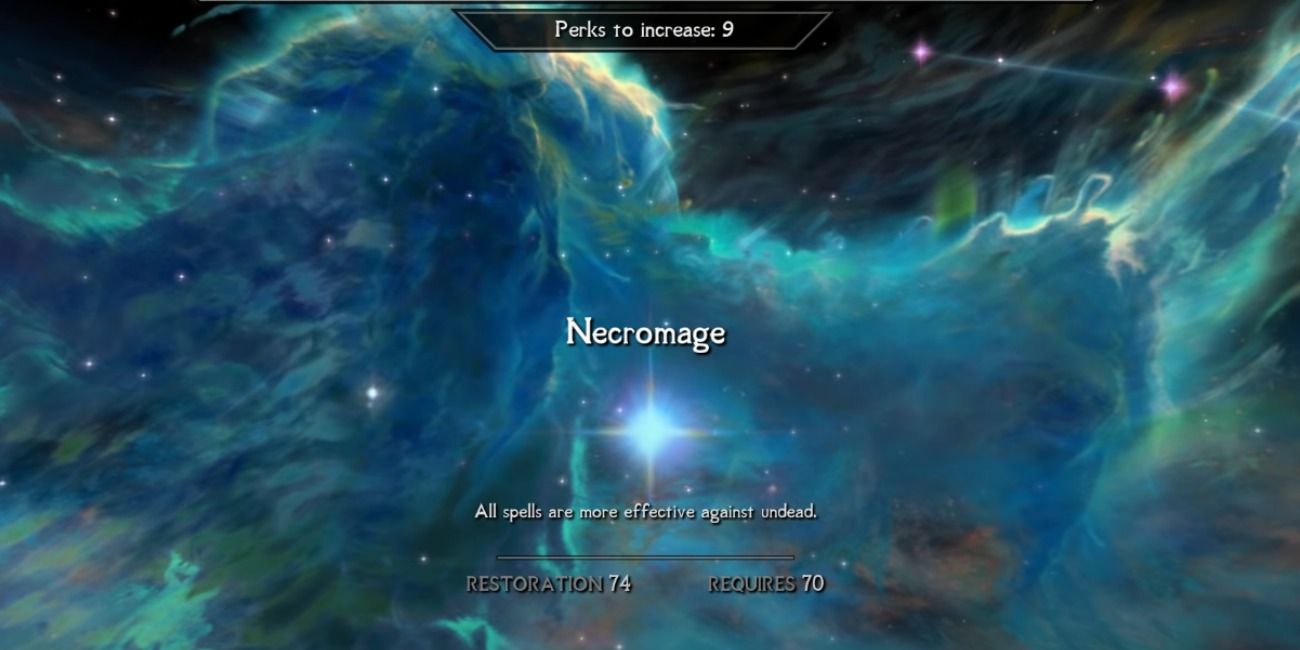Highlights
- Oblivion's leveling system uses scaled leveling, leading some players to grind skills due to increased difficulty.
- Arena features a simple and functional experience-point system with no skills, just attributes.
- Daggerfall offers active-based skill progression with a liberal point-buy system, allowing players to choose attributes to improve.
While gameplay in The Elder Scrolls has evolved over its long lifespan and will continue to evolve as soon as TES6 finishes cooking, the series has always catered to fans of the open-world power fantasy. As players explore more of the world, they generally become more powerful and able to take on greater challenges. For a power fantasy to work, it's critical that players see the incline of their abilities early in the game.
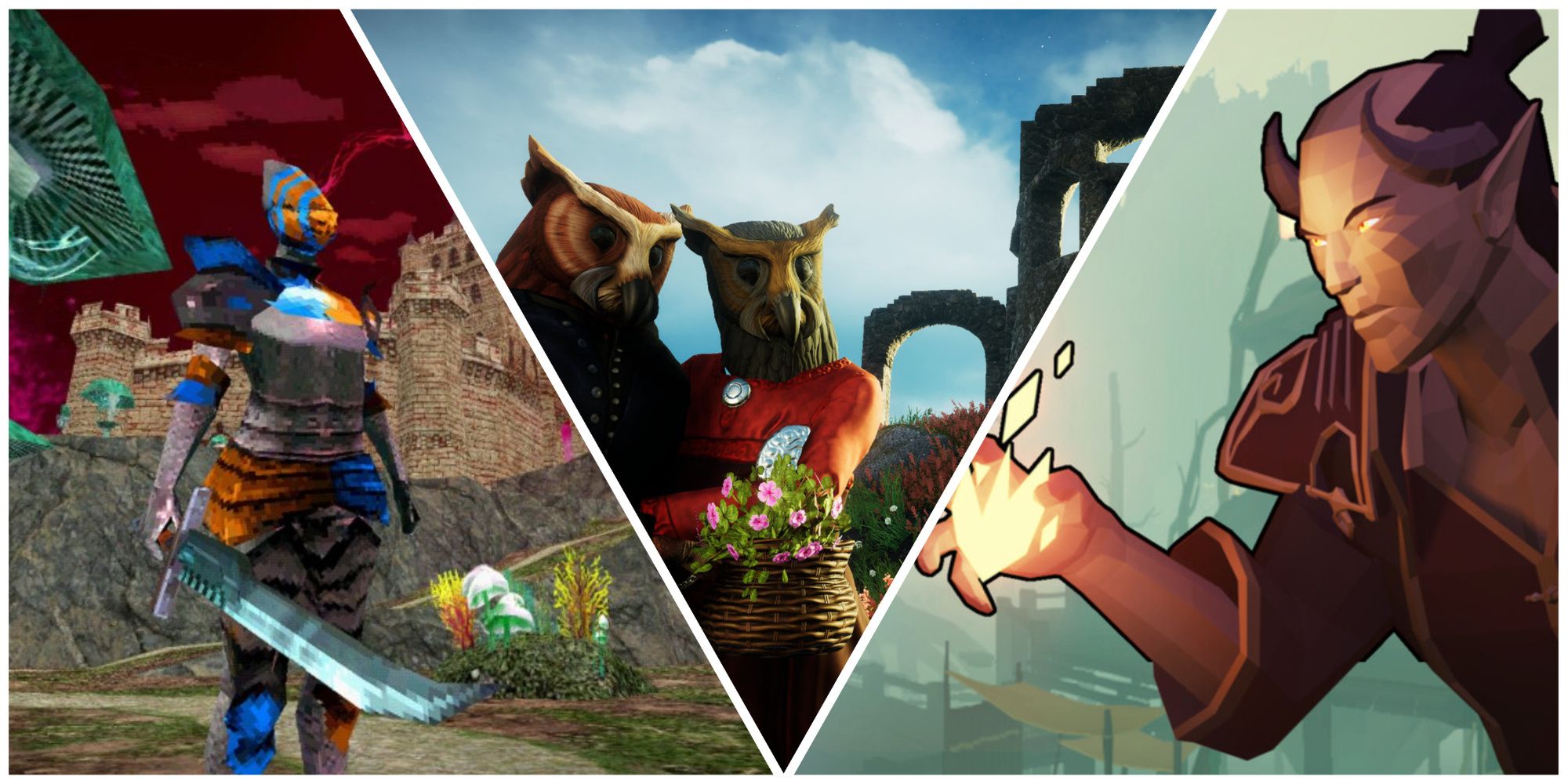
6 Immersive Indie RPGs Inspired By The Elder Scrolls
Fans of Skyrim, Morrowind, and Oblivion will want to check out these indie produced open world sandbox RPGs inspired by The Elder Scrolls franchise
However, getting a sound leveling system right is tricky, even for seasoned developers. From a traditional point-buy system to a complete progression system overhaul, The Elder Scrolls has never been afraid to experiment and improve itself, just like the player character on their adventure through Tamriel. But which systems got it right, which left its mark on the history of RPGs, and which fell short of expectations?
5 The Elder Scrolls 4: Oblivion
An Encouraging But Unintuitive And Occasionally Punishing System
- The leveling system in Oblivion uses scaled leveling, meaning enemies level along with the player
- While unintentional, players are mechanically encouraged to grind skills to deal with the ever-increasing difficulty
There's a lot to love about The Elder Scrolls 4: Oblivion, but its leveling system is roundly lauded as a misstep. In terms of the good, progression is immersive, as players must "meditate" or sleep in a bed to advance their ability. They are also treated with an encouraging message about their growth. The issue with leveling is not necessarily related to how the player develops but rather the fact that enemies level with the player (and sometimes surpass them). This mechanic was designed to give the player a constant sense of challenge, but ultimately, it takes away the feeling of progression and even makes leveling up undesirable.
Additionally, players need to carefully plan their character's leveling journey and grind specific skills because they can only choose three attributes to improve, and this number is based on how efficiently they level the skill in question. Mechanically, players are incentivized to avoid leveling up and, in some cases, should only improve the skills not associated with their class to stand a chance against the bad guys. Oblivion did introduce perks for leveling skills to a certain percentage (25, 50, 75, and 100). However, in an odd design choice, the player has no way to review them in-game after gaining them.
4 The Elder Scrolls: Arena
Offers Basic But Functional Progression
The Elder Scrolls: Arena
- Platform(s)
- PC
- Released
- March 25, 1994
- Developer(s)
- Bethesda Softworks
- Genre(s)
- Action RPG
- The original Elder Scrolls game uses a traditional experience-point system
- With no skills in the game, players only have to concern themselves with leveling up their attributes
It would be hard to blame the original game in the series for its leveling shortfalls, as in 1997, computer role-playing games were still forming out of the molten debris of wire-framed visuals and haphazard adaptations of popular tabletop games. However, Arena's progression system isn't terrible by any measure. The player levels up using an experience-points-based system that most Dungeons & Dragons fans should recognize.
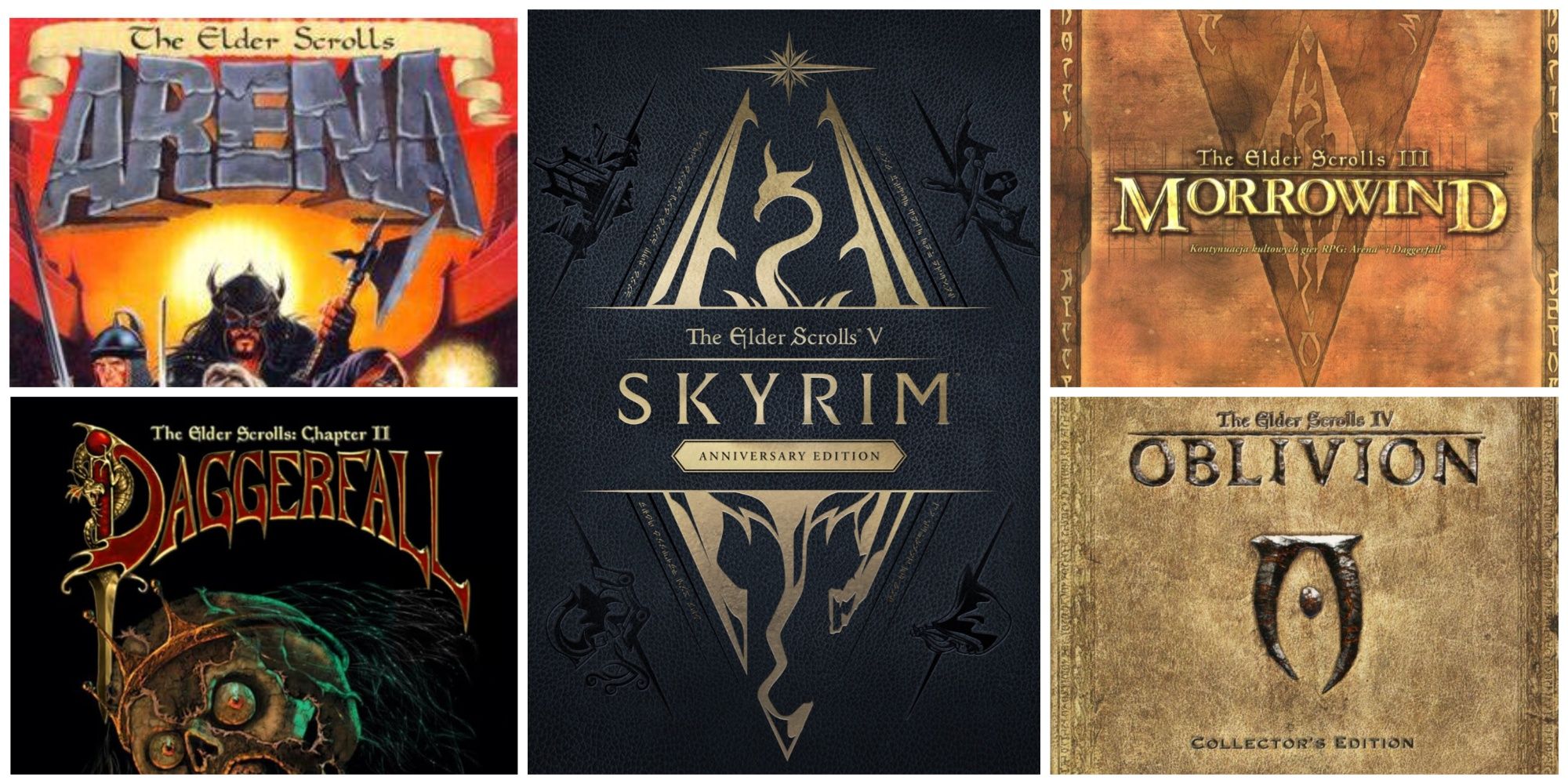
Elder Scrolls: Best Race To Use For Each Game
Each Elder Scrolls game takes place in a unique part of Tamriel, with unique challenges. Here's what race to go for in each of the franchise's games.
Inverse to one of its modern successors, Arena does not have skills, only attributes. After completing quests and slaying monsters, players increase their Strength, Agility, Intelligence, and so on, as well as their hitpoints. Each level becomes incrementally more difficult to reach the higher the player goes. It's simplistic by modern TES standards, but it gets the job done.
3 The Elder Scrolls 2: Daggerfall
An Important Evolutionary Step And The Best Of Two Worlds
- While Daggerfall introduces an activity-based skill progression, players can choose which attributes to improve with a liberal point-buy system
- Skills improve with use but have cooldowns on how fast they can be improved
The second entry in the series, The Elder Scrolls 2: Daggerfall, was hugely innovative and still stands as one of gaming's great achievements even today. Fans of modern Elder Scrolls titles may be surprised by what they see even during character creation, thanks to the huge amount of customizability on offer before the player even sets out to clear their first dungeon. Naturally, with a more in-depth character sheet came an improved progression system.
Daggerfall introduces skills that level up when used (with a cooldown timer on how often they can be increased), also known as "activity-based progression," a mechanic that its successors would run with in later games. A feature that the next two games regrettably dropped is one where players are given a set number of points to spend and can choose which attributes to level, rather than being based on how many times an attribute-governed skill is increased.
2 The Elder Scrolls 3: Morrowind
A Deep Advancement System With A Few Minor Flaws
The Elder Scrolls III: Morrowind
- Platform(s)
- PC , Xbox (Original)
- Released
- May 1, 2002
- Developer(s)
- Bethesda Game Studios
- Genre(s)
- RPG
- In Morrowind, players still have to keep an eye on which skills they improve, but this is much more forgiving than its successors' system
- By seeing trainers before they level up, players can avoid the "grinding" it takes to develop an efficiently leveled character
The fans' top spot for the game with the best progression system might ultimately come down to whether they prefer deep build craft or intuitive "you are what you do" gameplay. Morrowind certainly falls in the former category. In the tradition of many RPGs of the time (and today), most of the big choices about a character are made during character creation, encountered moments after they step off the boat. While it could be considered restrictive, it can help make characters feel distinctive. For example, one character will grasp obscure magic spells over thief skills because sneaking and lockpicking are one of their miscellaneous skills rather than one of their "major" or "minor" skills.
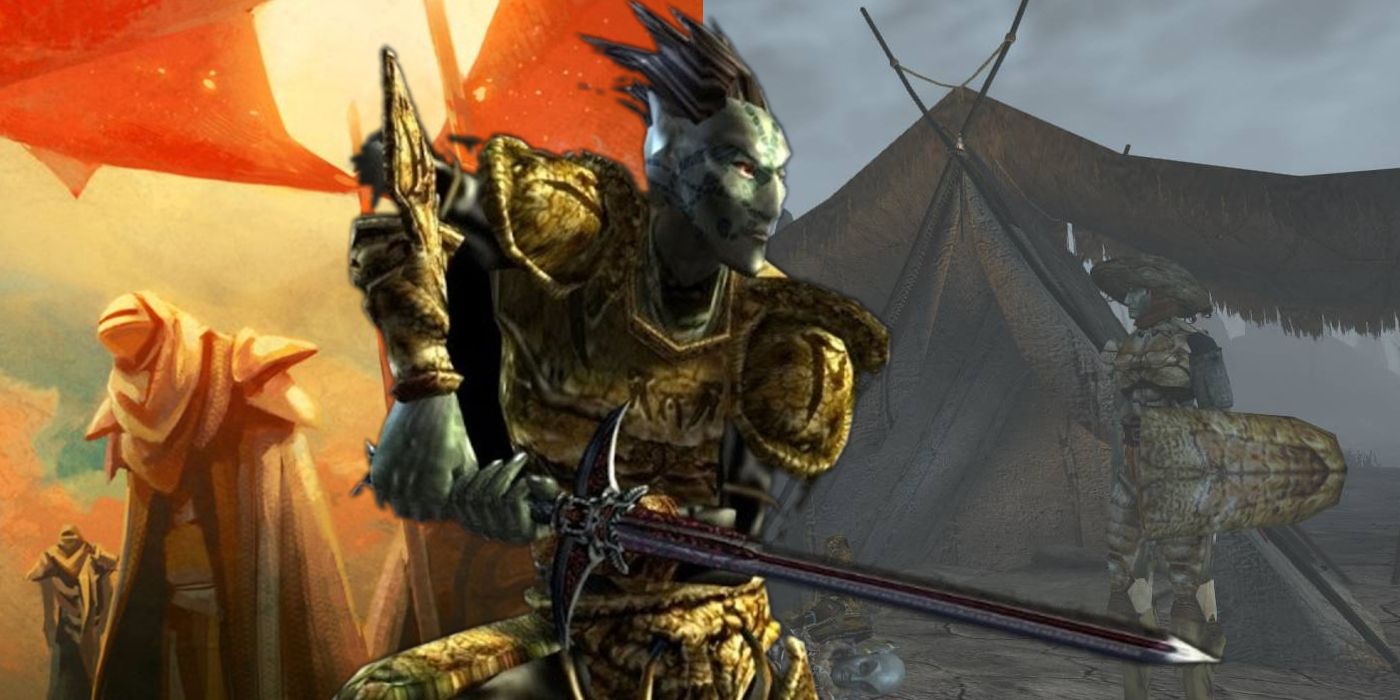
The Elder Scrolls: 15 Mods That Will Make You Reinstall Morrowind
Morrowind is almost twenty years old but these mods are so good they'll make any player want to run through this Elder Scrolls title again.
Players concerned with developing a viable character will busy themselves with min-maxing (getting the biggest boost for the fewest level-ups), but players can level up skills indefinitely before they have to enter the level-up screen. Veteran players know to head to skill trainers before they level up to avoid the feeling of having "missed out" on perfect progression. Despite some of the drawbacks to this system, enemies do not level alongside them as much as in the other games, and as such, Morrowind players will always see the benefits of their hard work.
1 The Elder Scrolls 5: Skyrim
A More Intuitive Way To Develop A Character
- Skyrim completely overhauled its leveling system, eschewing stats and character creation for a more intuitive "perk-buy" system
- Although characters can feel indistinct and unrestrained, this progression system resolves the issue of min-maxing
Players are what they do in Skyrim, as perk trees replace all the attributes and skill management from previous games. While Skyrim removed many series-established mechanics, such as the "Speed" attribute or the "Acrobatics" skill, the extensive perk-buy system adds a lot of depth and allows players to choose between various playstyles while they settle into the game. While many branches leave much to be desired, and early-game characters can feel samey, perks allow players to build distinct characters in the long run. Additionally, they make the jump between one level and the next feel more impactful.
Many skill increases are contextual, meaning many skills only increase when used in the right situation. For example, "Destruction Magic" only increases when used against a valid target. There are plenty of exceptions, but those players who prioritize efficiency are no longer bound to "grind" for skill increases as much as before. While there are certainly players who would argue that a class-based progression system creates more distinct characters, Skyrim's system does away with the overthinking associated with min-maxing a character, is intuitive, and offers plenty of depth.
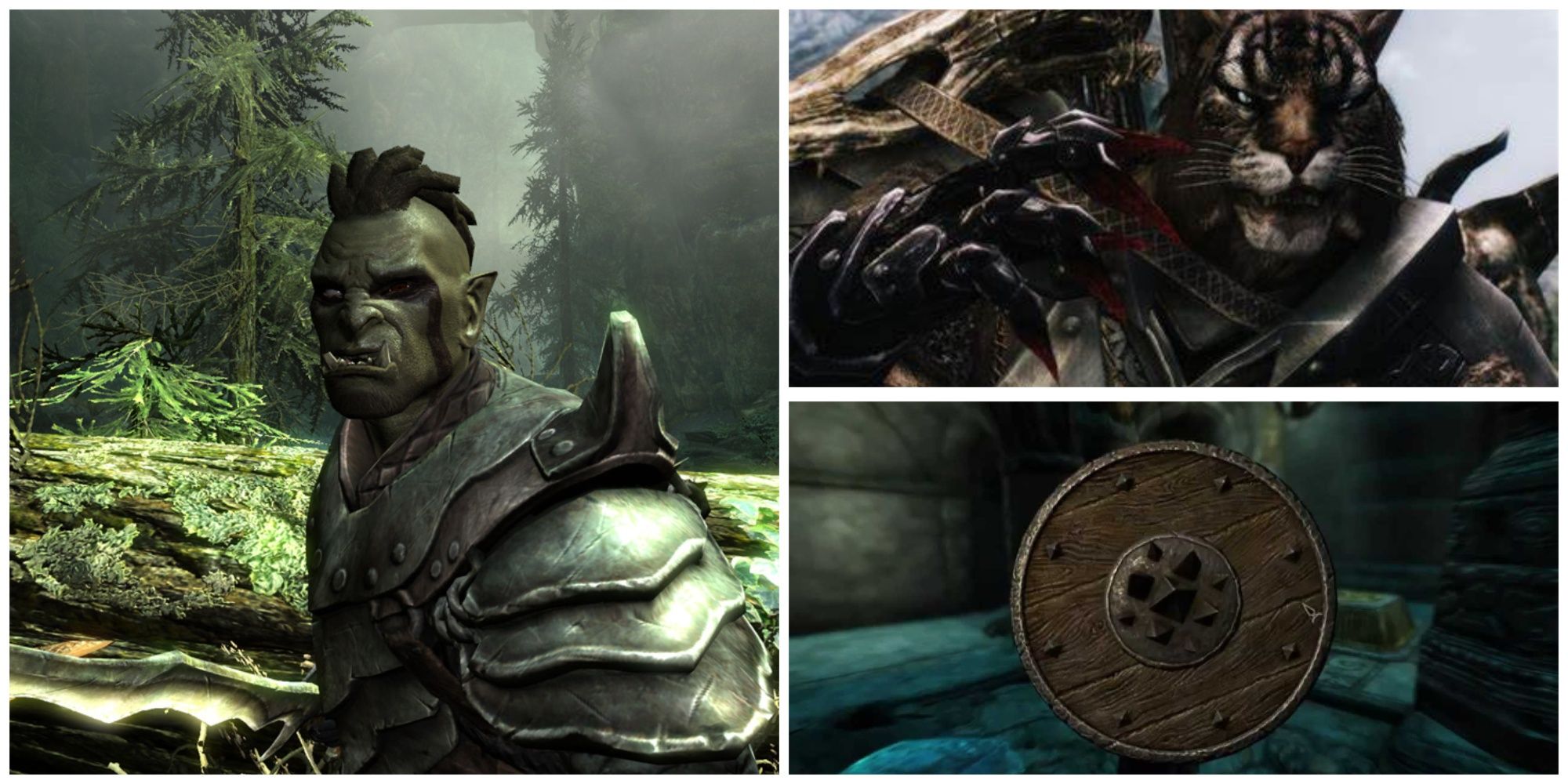
Elder Scrolls 5: Skyrim - 6 Unique Builds
There are lots of established builds that were created for Skyrim over the years, but these unique builds are for players craving something different.

